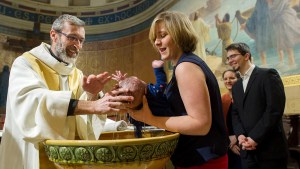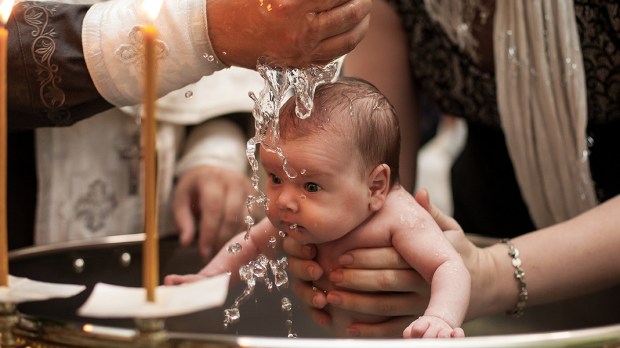In the English language, Christians most commonly use the word “baptism” to denote the primary sacrament of initiation (“christening” is also used, but not as often).

Read more:
Is baptism the same as christening?
The word has much depth to it and can be traced to a Greek word used throughout the New Testament. The Catechism of the Catholic Church highlights the following meaning of the word “baptism.”
This sacrament is called Baptism, after the central rite by which it is carried out: to baptize (Greek baptizein) means to “plunge” or “immerse”; the “plunge” into the water symbolizes the catechumen’s burial into Christ’s death, from which he rises up by resurrection with him, as “a new creature.” (CCC 1214)
Baptism by full immersion was most common in the Early Church and most fully connects this symbolism of “death,” visually representing the “death” that the catechumen experiences.
It signifies and actually brings about death to sin and entry into the life of the Most Holy Trinity through configuration to the Paschal mystery of Christ. (CCC 1239)
At the same time, the word also refers to the washing away of sin, highlighting this aspect of water, especially when baptism is administered by pouring water over a person’s head. The Catholic Encyclopediafocuses on this dimension of the word.
The word Baptism is derived from the Greek word, bapto, or baptizo, to wash or to immerse. It signifies, therefore, that washing is of the essential idea of the sacrament … when the terms Baptize, Baptism are employed without a qualifying word, they are intended to signify the sacramental washing by which the soul is cleansed from sin at the same time that water is poured upon the body.
As a result, “baptism” has a depth of meaning behind it that helps explain the profound spiritual mystery that takes place.

Read more:
How was baptism practiced in the early Church?

Read more:
Baptism facts: Do you know yours?

